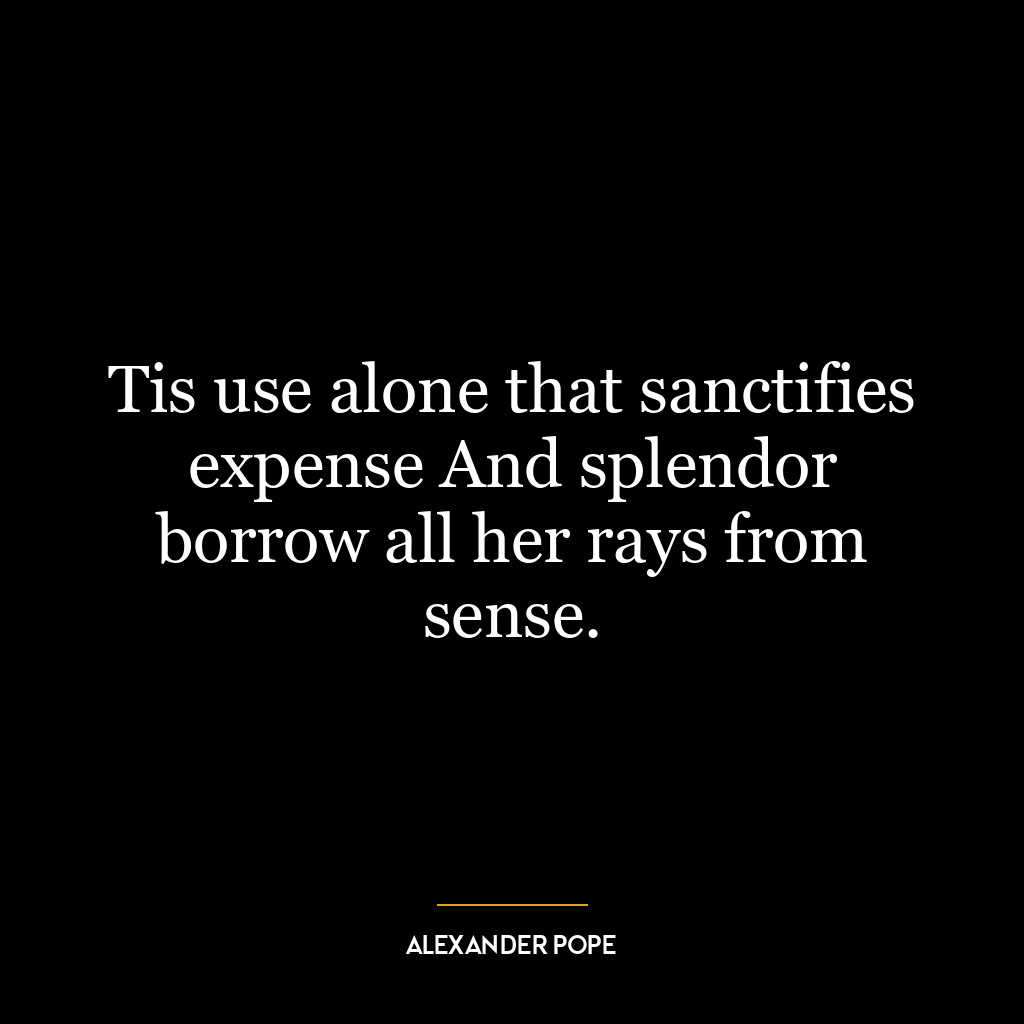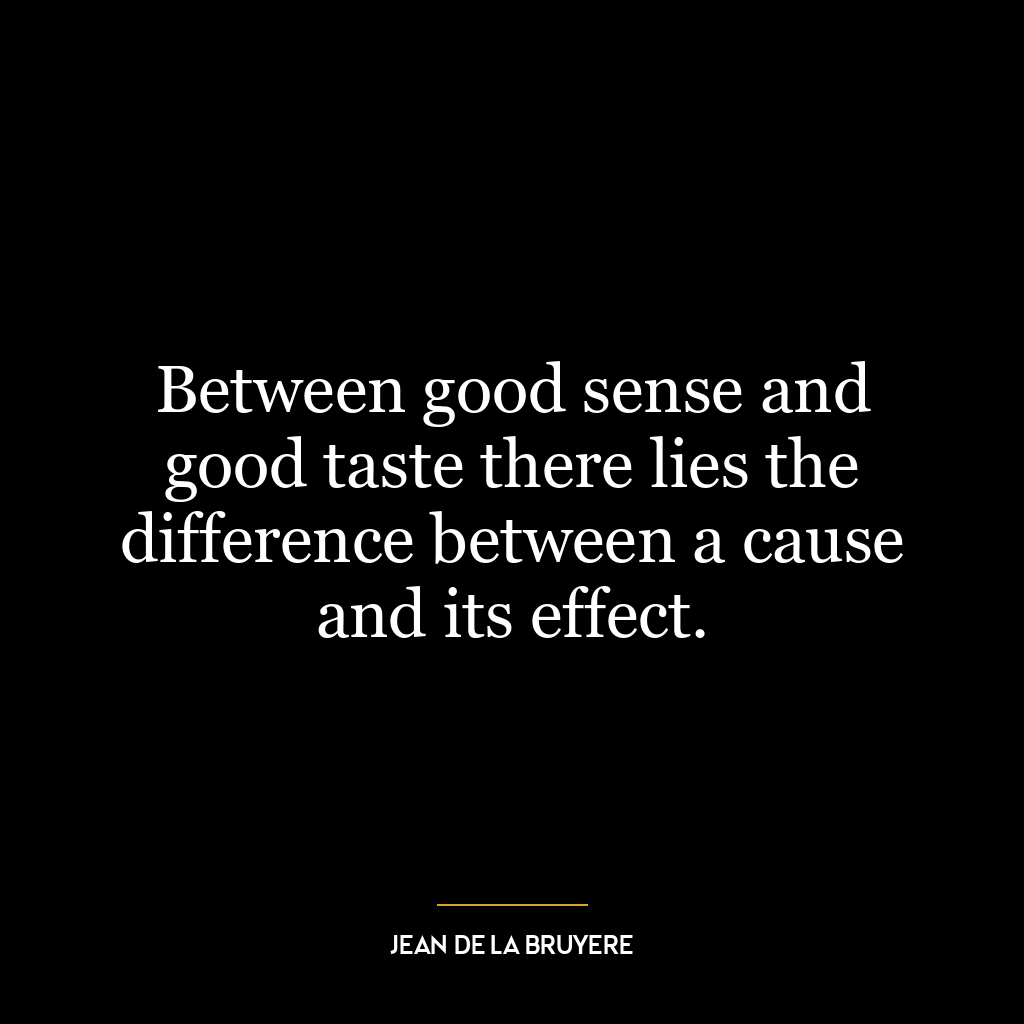This quote essentially means that expenditure is only justified when it is put to good use. "Tis use alone that sanctifies expense" implies that spending money is not inherently wrong or wasteful, but it must serve a purpose or function. The sanctity or validity of an expense is determined by its utility or usefulness.
The second part of the quote, "And splendor borrow all her rays from sense," suggests that true splendor or magnificence is derived from wisdom or sensible actions. Splendor doesn’t come from the mere possession of wealth or luxury, but from the intelligent and thoughtful application of resources.
Applied to today’s world, this quote can be interpreted as a critique of consumer culture and the notion of conspicuous consumption. It suggests that we should not spend money for the sake of showing off or appearing wealthy, but rather, we should spend money in a way that is useful and meaningful. This might mean investing in education, experiences, or things that genuinely improve our quality of life rather than simply buying more stuff.
In terms of personal development, this quote might encourage us to invest our time and energy wisely. Just as we should be thoughtful about how we spend our money, we should also be thoughtful about how we spend our time. True personal growth and development come from using our time wisely, not from simply being busy or appearing busy.














